Tens of thousands flock to Ramadan Nights in Lakemba as it returns after a two-year hiatus. Here’s an all-you-can-eat guide.
Each year in Ramadan, Haldon Street in Lakemba, in Sydney’s south-west, transforms into a bustling and vibrant night market. With the street closed to vehicle traffic, tens of thousands of pedestrians spill out into the roadway, eager to sample the food stalls strung along several blocks, serving dishes that can be traced back to the Muslim traditions of the Middle East and the Indian subcontinent.
Almost immediately you realise it isn’t just about food. It is a whole experience. You drool as you watch busy cooks grill scrumptious meat, as you patiently await your turn. You lean in to watch the theatrics as flat bread is tossed high in the air, and vendors use classic street market loud singsongs: "It's the best knafeh in Sydney", to lure you away from a neighbouring stall.
It's also about community. Everywhere you look, old friends are catching up. This holy month for Muslims is observed on the ninth month of the Islamic calendar, and is a time of spiritual cleansing, prayers and fasting. Members of community fast as a form of self-reflection, devotion and worship. The fast begins at the break of dawn and ends when the sun sets.
At sunset, families break the fast with the iftar meal. Traditionally, this is done by consuming dates, believed to have been Prophet Muhammad’s choice, and after daily prayers, the main meal is enjoyed by the whole family in the form of a buffet-style feast.
In Lakemba, families then spill onto the street to catch up with friends and family. The food and the people on the streets of Lakemba reveal a perfect image of Australia as a country, a proud, culturally diverse nation.
This week, I took time to sample as much of the amazing food on offer as I could stomach in a single night. Here's my review.
Knafeh
I started with knafeh, a traditional Middle Eastern dessert. There were multiple stalls selling the treat, so, as a first timer, I chose the one with the longest queue. The vibrant orange and green colours make the dish stand out. After a good 15-minute wait, the delicate vermicelli-like sugar-soaked layered cheese pastry garnished with pistachio, was enough to wake my taste buds.
Kaak
Next was a Lebanese pastry named kaak. It is essentially a dry bread topped with sesame seeds, which can be consumed as it comes or grilled/toasted with cream cheese. Having tried both versions, the grilled kaak had an added smokey flavour to it, in addition to the cream cheese, which made it tastier than the plain alternative.
Sahlab
After the rich textures of knafeh, I needed a drink to cleanse my palate. The sahlab or salep, served from giant golden pots, was asking to be tried. Traditionally used as a remedy for indigestion, the thick milky beverage has just the right amount of warmth for an unsettled stomach. The tuber of an orchid flower is used to thicken the milk and then it is mixed with pistachio, cinnamon and sugar. The spicy texture combined with the warmth and comfort of the milk almost make you drowsy. This drink is unlike any other beverage you have had before.
Camel burger
Another niche item on the Haldon Street menu is the camel burger. Burgers are not your traditional Ramadan dish but camel meat is a delicacy in parts of the Middle East. The burgers at Lakemba attracted a good number of foodies, judging solely by the 20-minute queue. The patty is juicy and flavoursome and the burger is similar to its beef counterpart but more savoury. My personal preference for extra chilli added a much needed jolt of flavour.
Potato on a stick
Next up was a snack that has its roots in Korea. The tornado potatoes or hoeori gamja are a spiral of deep-fried potato on a stick, garnished with Kashmiri red chilli powder to give it an extra kick. A perfect snack to munch on as you wait in long queues to try your next dish. It is not a traditional Ramadan delicacy but that did not dint its appeal.
Kebab
The star of the night! The delicious chicken kebabs were made using three different methods.
Red-coated chicken kebab: The most common style of kebab was the red-coated Middle Eastern recipe, in which the chicken has been marinated in chilli powder, curd and garlic overnight. It is then grilled over a fire on skewers and served as is or in the form of a wrap.
Green chicken kebab: Also known as hariyali chicken, it is an Indian version of the original kebab recipe. In this recipe, the red chilli powder is only used in small quantities for added flavour. The main ingredients in the marinade are spinach and mint leaf paste, giving the dish a more textured taste. The greens reduce the spice level of the meat but add another layer of flavour to it.
Chicken 65: Lastly, we have the Chicken 65 kebab. Urban legend says the name Chicken 65 comes from the first version of the dish being made with a chicken divided into 65 pieces, however, the general consensus is more prosaic, that it was named after the year it was invented, 1965, in southern India. The Chicken 65 certainly has more spice than the first two recipes but it's not the tongue-burning spice. The dish uses a marination of Indian spices such as garam masala, cinnamon powder and red chilli powder, giving the meat a very complex flavour. This savoury dish is best enjoyed with biryani or flat bread. (There is a non-spicy alternative for those with a low tolerance for spice.)
Jalebi
I still had room for one last treat, ending the night at the familiar and delicious jalebi stall. This savoury dessert, of Indian origin, is a deep-fried circular shape made with flour-based batter. It is soaked in a rich sugar syrup, creating an explosion of sugar in your mouth. The overpowering syrup dominates the taste sensation but as far as desserts go, I don't think you can one can ever have too much sugar.
The month of Ramadan concludes this Sunday, with Eid al-Fitr, the Islamic holiday observed after 30 days of fasting. The celebrations for the Muslim community will involve a great feast bringing together neighbours, friends and family to celebrate as one.
The Ramadan Nights festival, in Haldon Street, Lakemba runs until Sunday, May 1, from sundown until late.
Gautam is an undergraduate Media (Communication and Journalism) student at UNSW. An aspiring screenwriter who believes everyone has a compelling and unique story to tell.

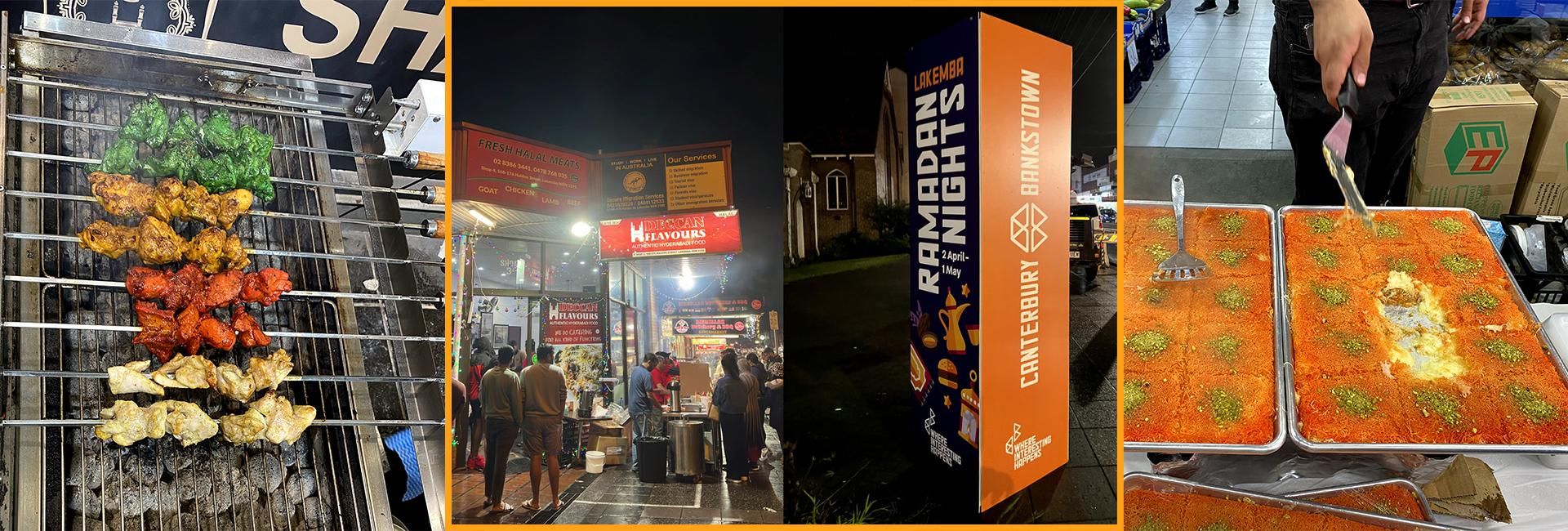
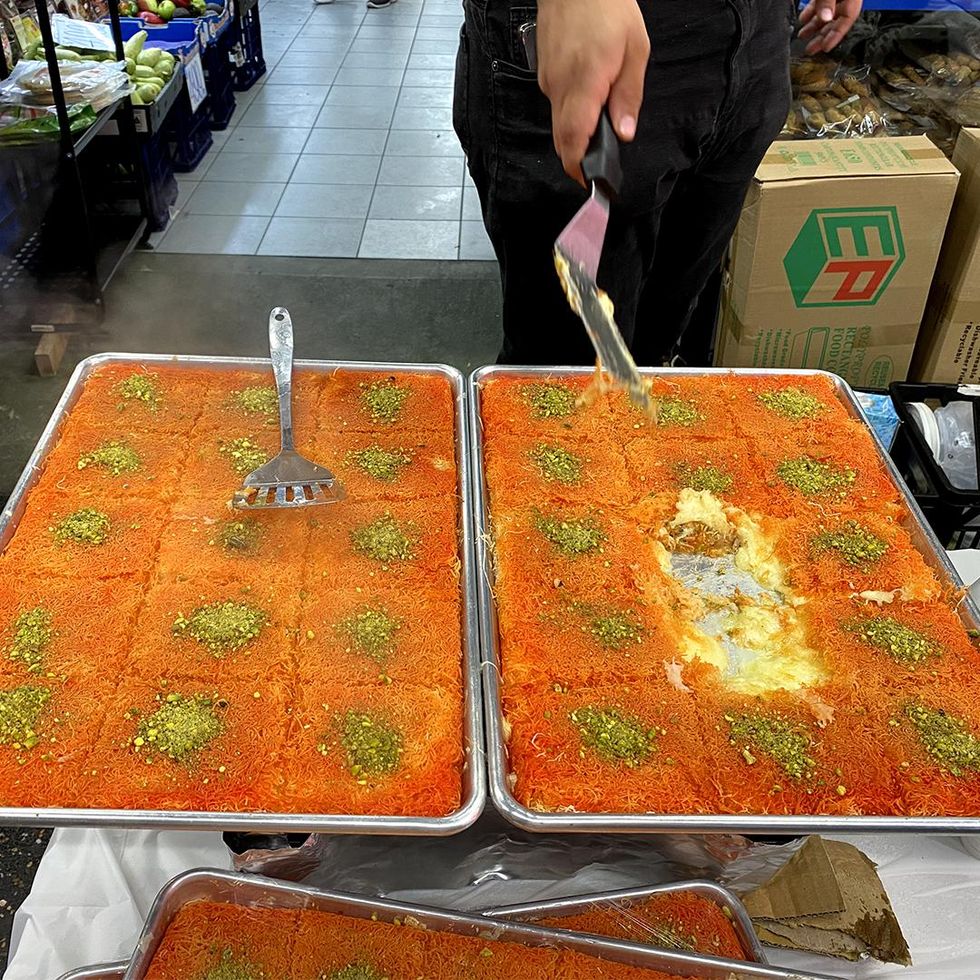
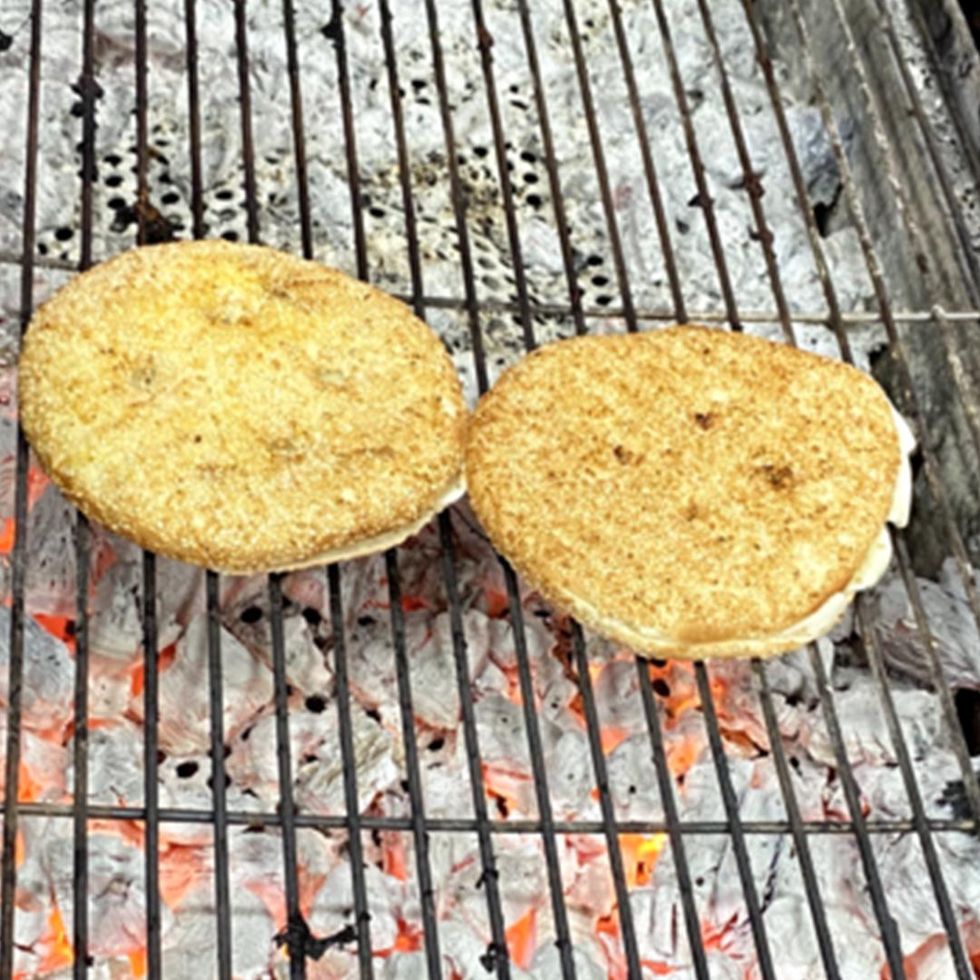
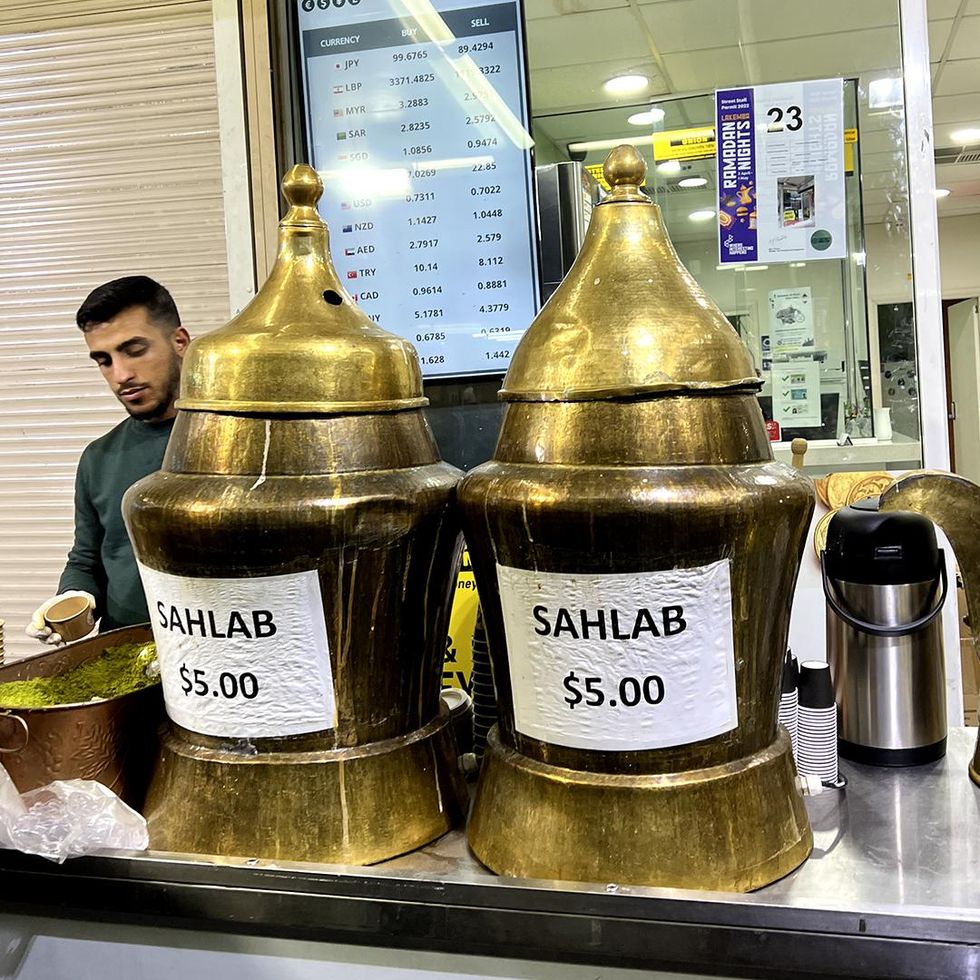
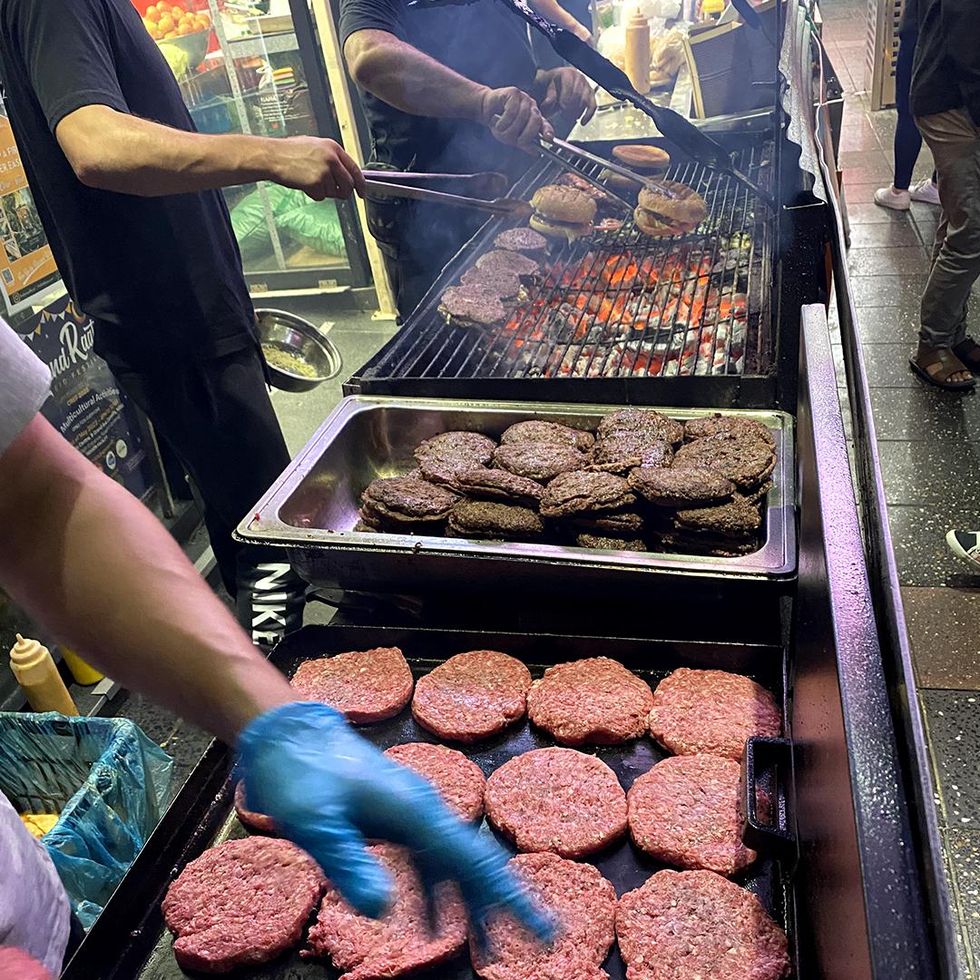
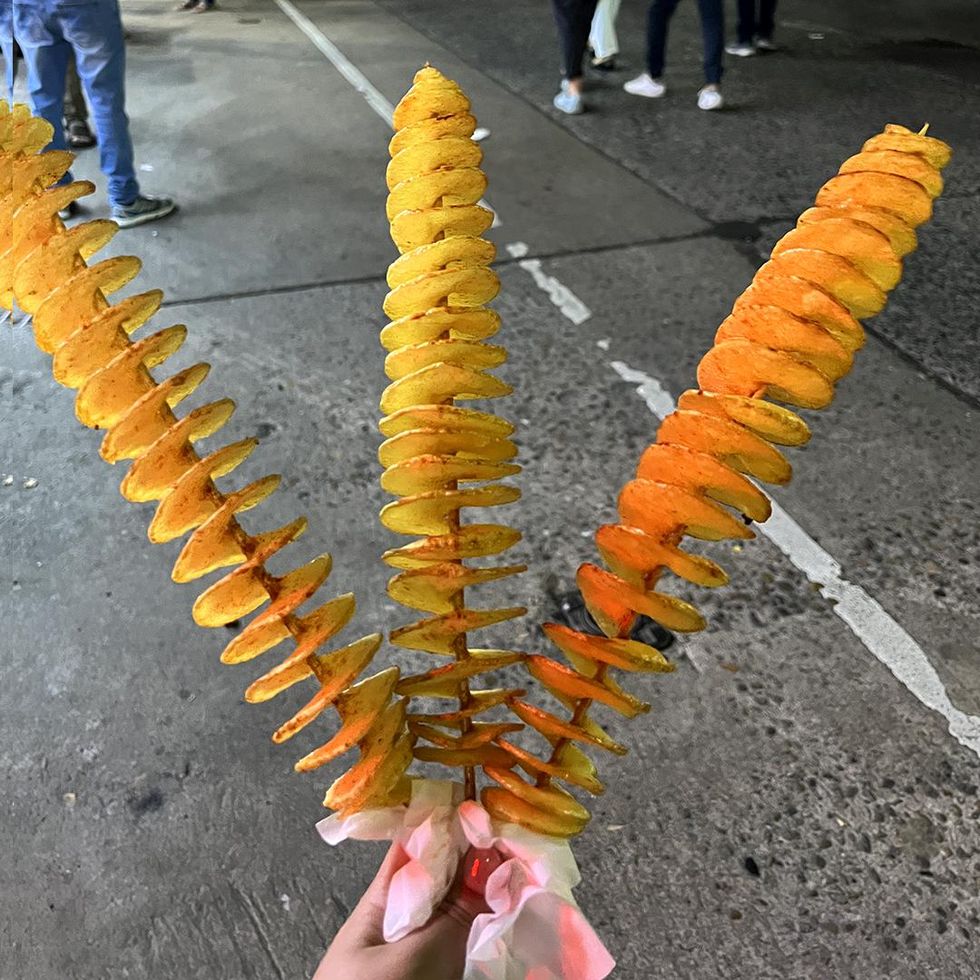
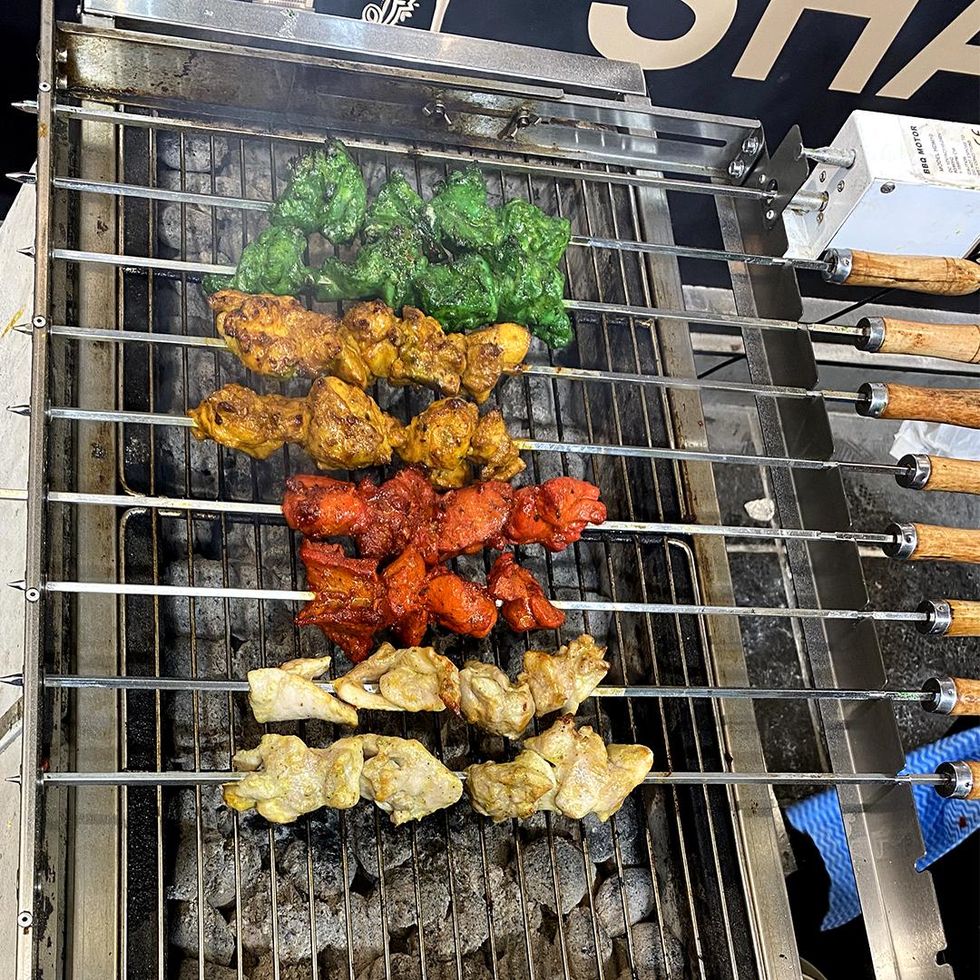
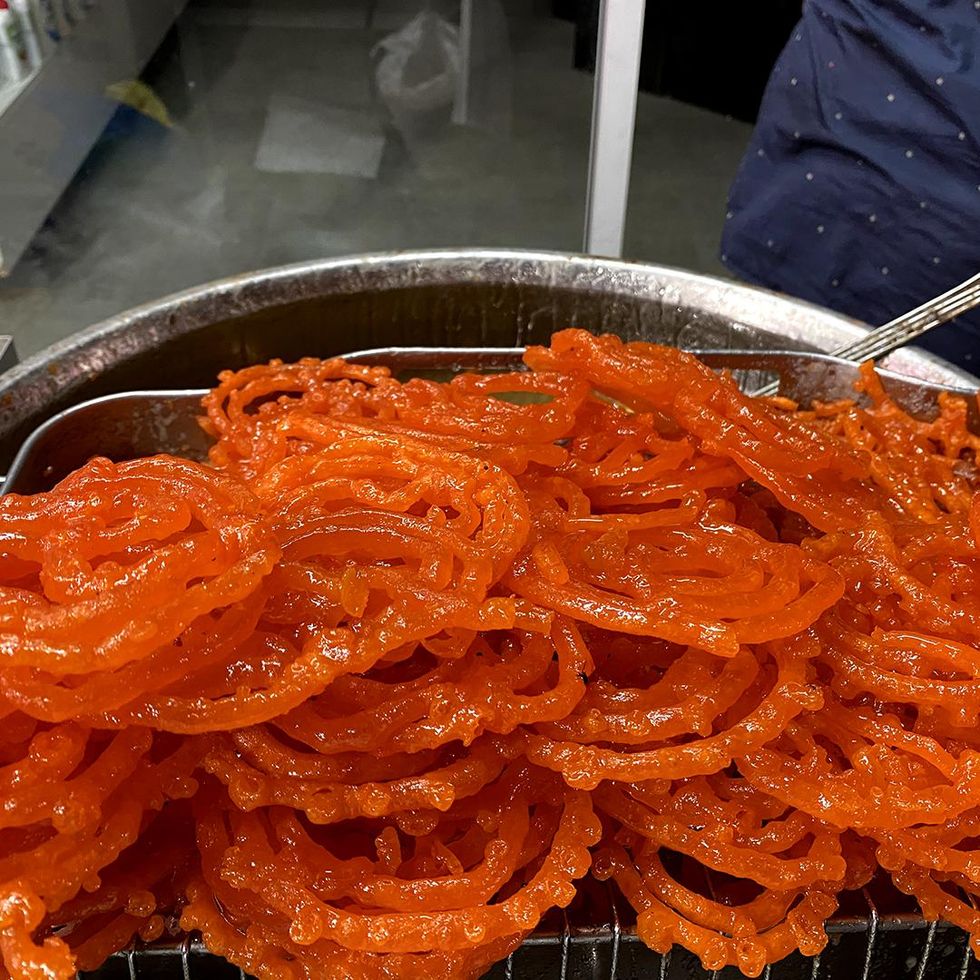




Afraid of an egg: the tyranny of living with social media's body standards